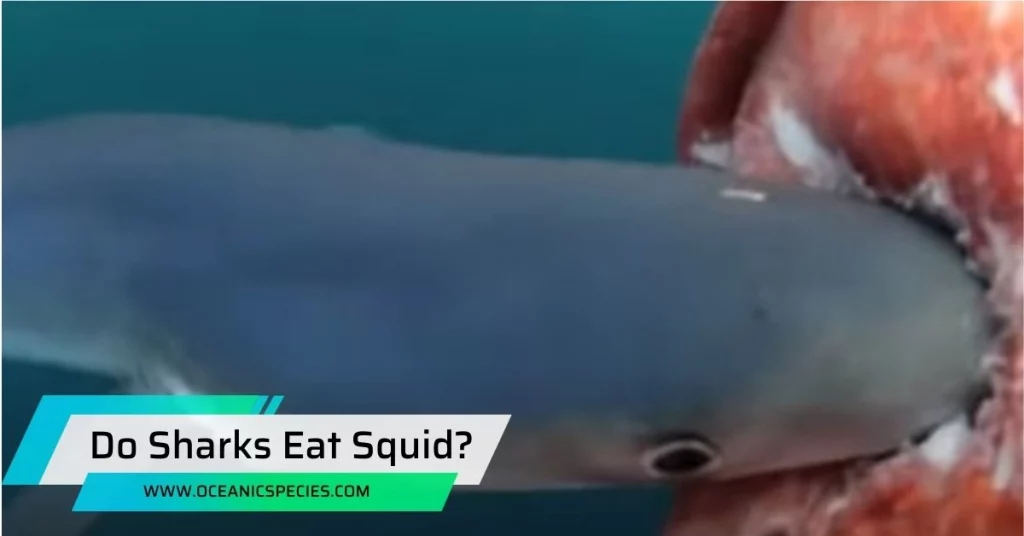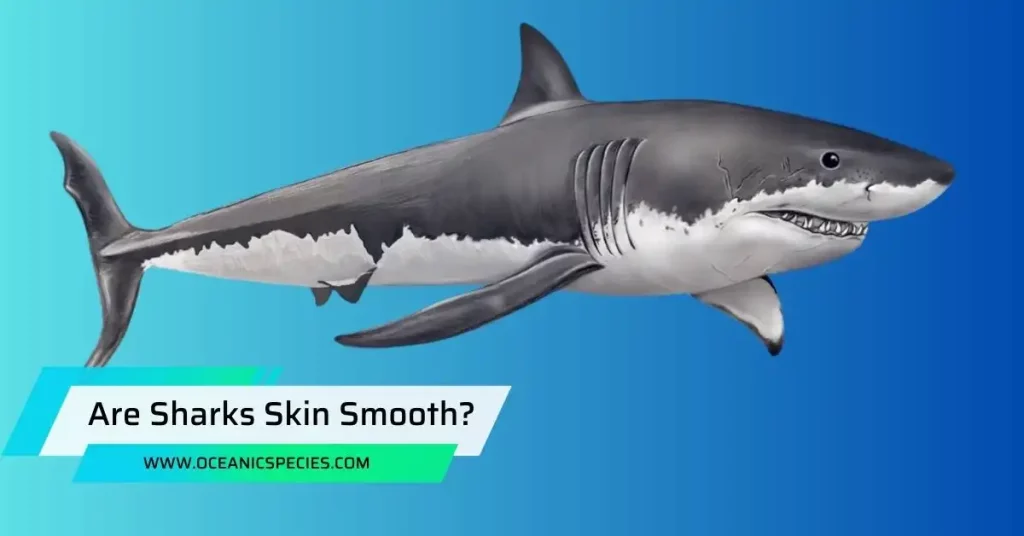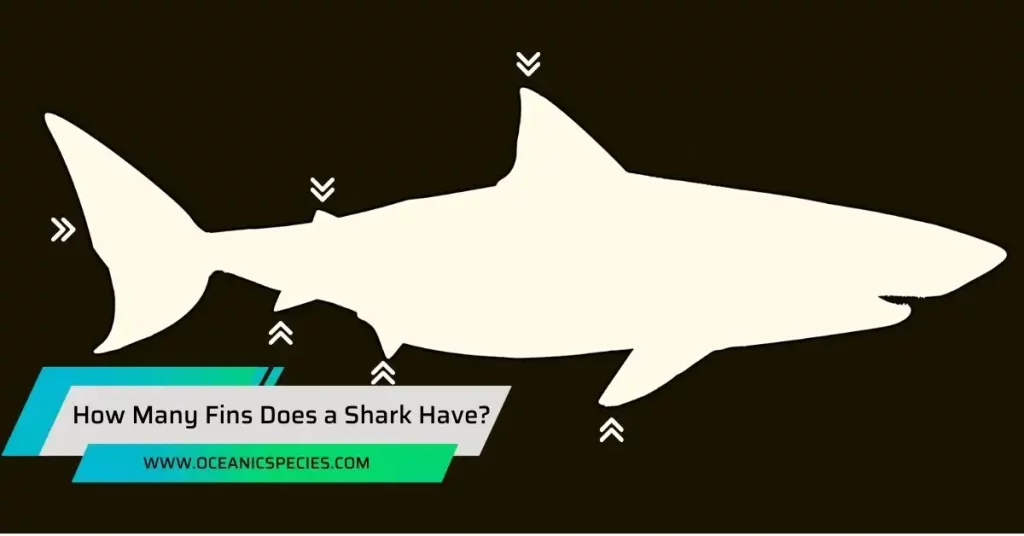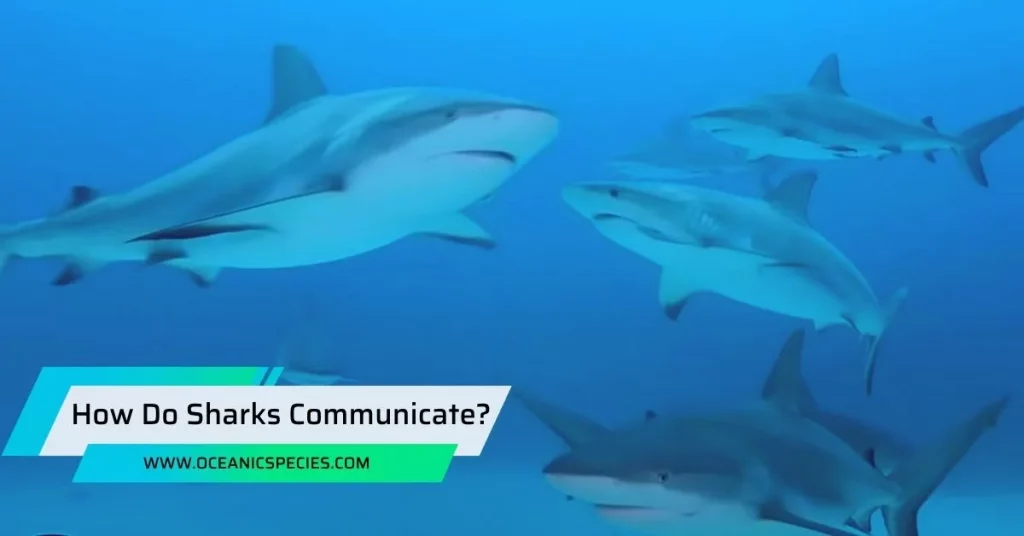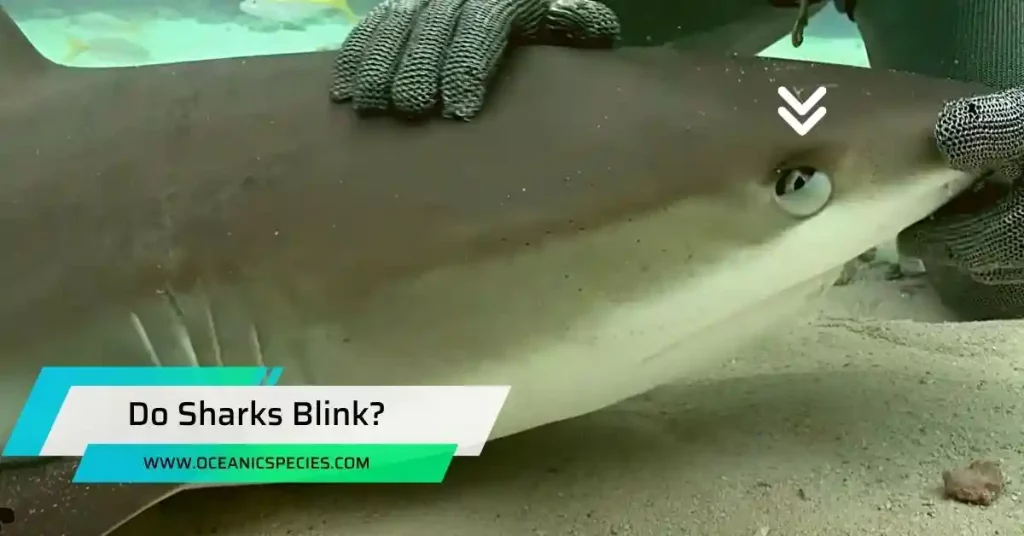Sharks do eat squid, as squid is a common part of their diet. Sharks are known to consume a variety of marine animals, including fish, seals, whales, and even other sharks.
Intro: sharks, being top predators in the ocean, have a diverse diet that includes a wide range of marine creatures. One such food source for sharks is squid. These magnificent creatures have a reputation for being fierce hunters, and squid happens to be a common item on their menu.
Sharks, with their sharp teeth and powerful jaws, are well-equipped to capture and devour squid. Apart from squid, they also feed on fish, seals, whales, and even other sharks, thereby establishing their position as apex predators in the marine ecosystem. We will explore the dietary habits of sharks, particularly their consumption of squid and the reasons behind it.
The Relationship Between Sharks And Squid
Sharks and squid both contribute to the complex ecosystem of the ocean. While it may seem like a simple predator-prey relationship, there is much more to their dynamic. Let’s delve into the ecological role of squid in the ocean and explore the potential prey-predator relationship between sharks and squid.
The Ecological Role Of Squid In The Ocean
Squid are more than just tasty snacks for sharks. They play a vital role in maintaining the balance of the marine ecosystem. Here are some key points to consider:
- Food source for various marine organisms: Squid serve as an important food source for a wide range of predators, including whales, dolphins, seabirds, and of course, sharks. Their abundance in the ocean ensures that these predators have a consistent supply of nourishment.
- Nutrient cycling: When squid are consumed by predators, their nutrients are transferred up the food chain. This process contributes to the cycling of essential nutrients, ensuring that they are efficiently distributed throughout the ecosystem.
- Population control: Squid populations can be affected by predation from sharks and other predators. This predation helps regulate squid numbers, preventing overpopulation that can lead to detrimental effects on other species and the overall ecosystem.
The Potential Prey-Predator Relationship
While sharks do consume squid, their relationship is not solely based on predation. Here are some key points to understand their relationship:
- Coexistence and adaptation: Squid have evolved various defense mechanisms to survive encounters with sharks. Some species are equipped with ink sacs, a jet propulsion system, or even bioluminescence to evade predation. These adaptations demonstrate the ongoing interplay between sharks and squid in the struggle for survival.
- Selective feeding: Sharks are known to prey on a variety of marine organisms, and squid are just one of the many items on their menus. They are not solely dependent on squid, and their diet can vary depending on factors such as prey availability and location. This selective feeding helps prevent the depletion of any single prey population.
- Ecological balance: The predation of squid by sharks helps maintain the balance of the ocean ecosystem. By controlling squid populations, sharks prevent them from dominating the ecosystem and promote species diversity.
Shark Species Known To Feed On Squid
Sharks’ diet is a topic of great interest to many. One question that often arises is whether sharks eat squid. In this section, we will explore the variety of shark species known to feed on squid.
Exploring The Variety Of Shark Species
Sharks are a diverse group, with over 500 species known to science. While not all sharks consume squid, there are several that specifically target these cephalopods as part of their diet. Here are some key points about these fascinating shark species:
- The great white shark, often regarded as the ultimate predator, is known to feed on a variety of prey, including squid. These mighty hunters are capable of consuming large quantities of squid when they come across them in their range.
- The mako shark, known for its impressive speed and agility, is another species that actively hunts squid. With their sleek bodies and sharp teeth, they are well-equipped to catch and consume these fast-moving cephalopods.
- The blue shark, recognizable for its striking blue coloration, also includes squid in its diet. These sharks are known to travel vast distances in search of food, and squid are among their preferred prey items.
- The hammerhead shark, with its distinctive hammer-shaped head, is another species that has been observed feeding on squid. Their unique head shape may provide them with enhanced sensory capabilities, making it easier to locate and capture their slippery prey.
The Anatomy And Adaptations Of Squid That Attract Sharks
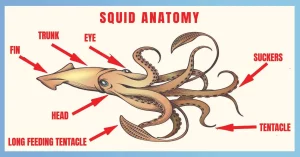
Sharks often associated with the ocean’s top predators. But what drives these apex hunters to target certain prey species, such as squid? In this section, we will explore the anatomy and adaptations of squid that attract sharks, shedding light on why these marine creatures become favored targets for shark predation.
Understanding The Physical Characteristics Of Squid
Squid possess a range of physical attributes that make them appealing to sharks. Here are some key points to consider:
- Camouflage and coloration: Squid are masterful at blending into their surroundings. Their ability to change color and patterns allows them to hide from predators and ambushing them for a surprise attack, making them an enticing meal for stealthy sharks.
- Soft bodies and delicate flesh: Unlike some other prey species, squid have soft and tender bodies, which makes for a relatively easy meal. Sharks can quickly devour the delicate flesh of a squid, minimizing the effort required to consume this delectable prey.
- Giant eyes and bioluminescence: Squid have large, expressive eyes that offer excellent vision in low-light conditions. They also possess the unique ability to generate bioluminescent light, enabling them to communicate and attract mates. Unfortunately for squid, these bright displays can also grab the attention of nearby sharks, who are drawn to this unusual visual stimulus.
How Squid’S Behavior And Movement Trigger Shark Hunting Instincts
The behavioral patterns and agile movements of squid can trigger a shark’s hunting instincts, making them irresistible targets. Consider the following factors:
- Swift and erratic swimming: Squid are agile swimmers, capable of swift and erratic movements. This darting behavior imitates injured or distressed prey, triggering a predatory response in sharks. The quick movements and unpredictable maneuvers of squid can hijack a shark’s natural instinct to hunt.
- Jet propulsion and escape tactics: Using a unique system called jet propulsion, squid expel water from their bodies to accelerate and change direction rapidly. These burst movements, coupled with their ink release, can serve as an effective evasion tactic against predators. However, for a shark in pursuit, these escapes can become a thrilling chase, heightening the prey drive and sharpening the focus on capturing the squid.
- Squid aggregations: Squid tend to gather in large numbers during certain seasons or in specific areas, forming impressive aggregations known as “schools.” These gatherings can act as a beacon, attracting sharks from miles away who sense the potential for abundant food. The social dynamics of squid groups create an enticing hunting opportunity for sharks, as they present a concentration of vulnerable prey in one location.
The Hunting Tactics Employed By Sharks When Feeding On Squid
When it comes to squid, sharks employ various tactics to capture their prey effectively. Understanding these strategies can shed light on the fascinating world of shark-squid interactions. In this section, we will explore two common hunting tactics employed by sharks when feeding on squid: the ambush strategy and the chasing strategy.
The Ambush Strategy: How Sharks Surprise Their Prey
Sharks have perfected the art of ambushing their prey, including squid. This stealthy approach allows them to catch their target unaware and maximize their chances of success. By lurking in the depths, sharks patiently wait for the perfect moment to strike. They utilize their keen senses, such as sight and hearing, to detect the presence of squid in their vicinity.
Once a shark identifies a potential meal, it positions itself strategically, camouflaging with its surroundings. This enables the predator to blend in seamlessly, making it virtually invisible to its unsuspecting prey. With lightning-fast speed and agility, the shark swiftly closes in on the unsuspecting squid, using its powerful jaws to capture it in a single, well-coordinated attack.
Sharks display remarkable precision and timing during the ambush, often surprising their prey before it has a chance to react. This strategy allows them to capitalize on the element of surprise, increasing their chances of securing a meal.
The Chasing Strategy: Sharks In Pursuit Of Squid
In certain cases, sharks opt for a more active approach by employing the chasing strategy when hunting squid. This tactic involves relentless pursuit, as the shark chases down its prey with determination and intensity. When a shark detects the presence of squid in its vicinity, it initiates a high-speed pursuit, using its streamlined body and powerful tail to propel forward rapidly.
Sharks are apex predators, equipped with exceptional speed and agility, which enable them to close the gap between themselves and their agile prey. This pursuit can cover considerable distances, highlighting the shark’s endurance and determination. During the chase, the shark relies on its sensory organs, including electroreceptors, to track the squid’s movements accurately. This sensory advantage increases the shark’s chances of capturing its elusive prey.
Once within striking distance, the shark makes a swift and precise move, seizing the squid with its sharp teeth. This rapid attack leaves little room for escape, ensuring the shark’s success in capturing its meal.
Factors Influencing Shark-Squid Interactions
Sharks and squids inhabit the ocean depths. It’s only natural to wonder about their interactions in the wild. Let’s explore the factors that influence shark-squid interactions.
Environmental Factors That Affect Shark And Squid Distribution
- Temperature: Sharks and squids have different temperature preferences. Sharks tend to inhabit warmer waters, while squids prefer cooler temperatures.
- Depth: Sharks and squids occupy different ocean depths. Certain shark species, such as the great white shark, can be found near the surface, while squids often dwell in deeper waters.
- Salinity: Sharks are typically found in saltwater environments, while squids can tolerate various levels of salinity. Their distribution may be influenced by variations in saltwater concentrations.
Seasonal Variations In Shark And Squid Populations
- Reproduction: Both sharks and squids undergo reproductive cycles that may impact their populations. During certain seasons, sharks may migrate to specific areas for mating, while squids mate and lay eggs in particular locations.
- Prey availability: Squids are an important part of the shark’s diet. The abundance of squids can vary seasonally, affecting the feeding habits and distribution of sharks.
- Migration patterns: Some shark species undertake long-distance migrations, following prey species and optimal conditions. Squid populations can also fluctuate due to seasonal changes, influencing the likelihood of shark-squid interactions.
The Impact Of Shark Predation On Squid Populations
Explore the impact of shark predation on squid populations, examining the potential consequences and the ecological significance of this predator-prey relationship.
Examining The Potential Consequences On Squid Populations
Squid populations play a crucial role in marine ecosystems, serving as a vital food source for many marine animals, including sharks. The predation of sharks on squid has several potential consequences, which are worth exploring:
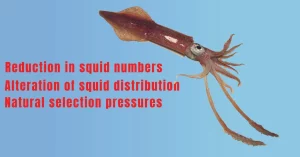
- Reduction in squid numbers: When sharks actively feed on squid, it can lead to a decrease in their population size. This can disrupt the delicate balance in the ecosystem, as other marine animals reliant on squid for sustenance may struggle to find enough food.
- Alteration of squid distribution: The presence of sharks in an area can impact the behavior and distribution patterns of squid. Squid may avoid areas where sharks are prevalent, altering their migration patterns or remaining in deeper waters to reduce the risk of predation.
- Natural selection pressures: The predation of sharks on squid can act as a natural selection pressure, favoring traits that allow squid to evade or defend against shark attacks. Over time, this can drive evolutionary changes in squid populations, leading to adaptations that improve their chances of survival.
The Ecological Significance Of This Predator-Prey Relationship
The predator-prey relationship between sharks and squid holds significant ecological importance. Here are a few key points to consider:
- Maintaining population balance: Predation by sharks helps to regulate squid populations, preventing them from becoming overly abundant and potentially dominating their ecosystem. This control is vital for maintaining the overall balance of the marine food web.
- Energy transfer: Squid serve as a link in the transfer of energy through the food chain. As sharks consume squid, the energy stored within the squid is transferred to the shark. This energy transfer is crucial for sustaining the predators higher up in the food chain, contributing to the overall health and stability of the ecosystem.
- Influence on nutrient cycling: The predation of sharks on squid can also indirectly impact nutrient cycling in the marine environment. When sharks consume squid, they excrete waste that contains essential nutrients. These nutrients are then released back into the ecosystem, creating a cycle that supports the growth of other marine organisms.
Frequently Asked Questions
Why Do Sharks Eat Squid?
Sharks eat squid because they are a good source of nutrients and provide a balanced diet for these predators.
How Do Sharks Catch Squid?
Sharks rely on their speed, agility, and sharp teeth to catch squid in the water, using their hunting skills to their advantage.
Are Squid A Favorite Food Of Sharks?
Yes, squid are often considered a favorite food for certain species of sharks due to their availability and nutritional value.
Do All Sharks Eat Squid?
Not all sharks eat squid, as their diet varies depending on the species and their specific preferences.
Conclusion
To wrap up, the fact that sharks eat squid is not surprising given their opportunistic and diverse diet. Squid offer sharks a nutritious food source, rich in protein and essential nutrients. These creatures have evolved various feeding strategies, enabling them to catch and consume squid efficiently.
From deep-sea dwellers like the colossal squid to swift and agile species such as the humboldt squid, sharks encounter a wide array of squid in their aquatic habitats. While some sharks, like the cookiecutter shark, target the soft flesh of squid, others like the great white shark may consume the entire cephalopod.
Ultimately, the relationship between sharks and squid is fascinating, highlighting the complex nature of oceanic ecosystems and the diverse dietary choices of these apex predators.

